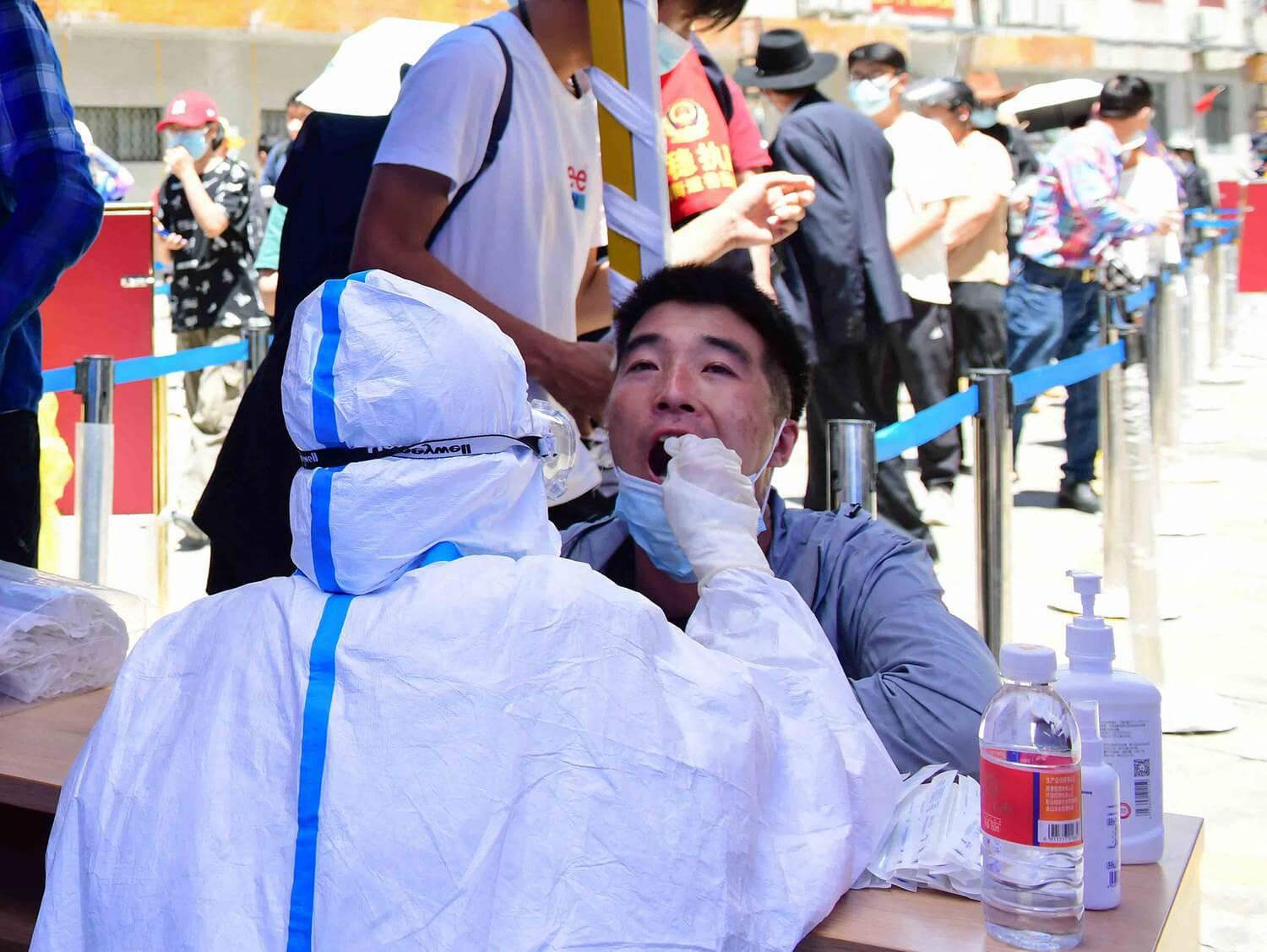Newly-surfaced videos on social media show hundreds of people participating in a rare protest against China’s strict COVID-19 lockdown measures in the Tibetan capital of Lhasa, where strict Zero-Covid policies have been in place for over 80 consecutive days now.
Participants, believed to be mostly ethnic Han Chinese migrant workers, can be seen marching on streets, demanding to be allowed to return home, and clashing with law enforcement during the protest that is believed to have taken place all through Wednesday.
“We haven’t had any income for three months - but expenses have not been reduced even by a penny. My friends in Lhasa - how long can you go on like this?” said a post on Douyin, the Chinese version of TikTok.
More footage of the protests happening in #Lhasa, #Tibet. They are the first protests in the city since the 2008 #Tibetan Uprising. #COVID19 @GundamNorthrop pic.twitter.com/PNbhgTPFXr
— Tibet Rights Collective (@TibetCollective) October 27, 2022
A video shared on the platform shows hundreds of people gathered on the streets, with authorities in hazmat suits blocking them at one end. A message calling on demonstrators to calm down can be heard on a loudspeaker, with an official asking for people to “please be understanding and to go back.” “Everybody please understand our work, go home and do not crowd this area,” an official shouted through a megaphone.
Another video shows several people gathered on the streets at night, wherein a man can be heard saying: “[They] have been locked up for too long. And a lot of people in this community are people who have just come to work and earn money. If they could get that in mainland China, they wouldn’t have come here.”
“China lies, Tibetan dies”
— National Democratic Party of Tibet (@DemocraticTibet) October 27, 2022
A call for China to immediately rollback its draconian zero covid policy. China covid policy failed Tibet.
Tibetan protest against Chinese covid policy in Lhasa,Tibet.
pic.twitter.com/vrONYxTYAY
A source told BBC there were fears that altercations between civilians and police officers could turn violent. The outlet also verified that some of the videos were taken in Lhasa in recent days. Although they were taken down from Chinese social media, they were reposted on Twitter.
Tibet, one of the most heavily guarded regions of the country with severely limited access to the media, has been placed under China’s stringent zero-COVID strategy lockdown for nearly three months, as it battles waves of infections. In fact, rights groups claim that several Tibetans have committed suicide under heavy restrictions.
🧵 Breaking News: Footage is emerging of protests on the streets in #Lhasa as Tibetans push back against the CCP's draconian Zero Covid policy #Tibet #FreeTibet pic.twitter.com/CIoCgRY1QZ
— Free Tibet (@freetibetorg) October 27, 2022
Commenting on the hardship, a source from Lhasa, who only identified herself as Han, said that “People are locked at home every day and life is so hard. Prices in Lhasa now are so high and landlords are chasing people for rent. The workers also aren’t allowed to go back to their hometown. They have no other way out.”
“Today is the 77th day of the lockdown in Lhasa. I don’t know how long it will continue to be like this. I [cant find] hope. Can you understand... how hard it is for migrant workers?” a post on Douyin said in this regard.
Wednesday’s protest is believed to be the largest the city has seen since an uprising in 2008, when Tibetans protested against Beijing’s mistreatment of the group. 19 people were killed in scuffles after tens of thousands of Chinese soldiers were sent to restore order.
footage from protests against strict covid measures in tibet
— ian bremmer (@ianbremmer) October 27, 2022
very rare for the region under such tight chinese control
likely biggest protest since 2008pic.twitter.com/6c4DqdeUD5
While there has been no official comment from Beijing on the matter, it recently arbitrarily sentenced six Tibetan intellectuals and activists, to prison terms ranging from four years to fourteen years, on vague charges of “inciting separatism” and “endangering state security.”
Former political prisoner Golog Jigme told the media that their entire trial was carried out in secrecy. “Because of tight restrictions and constant scrutiny inside Tibet, it is very difficult now to learn more detailed information about their current health conditions or where they are being held,” he said.

